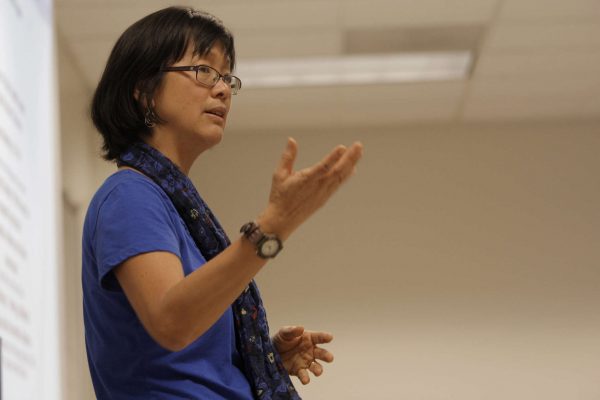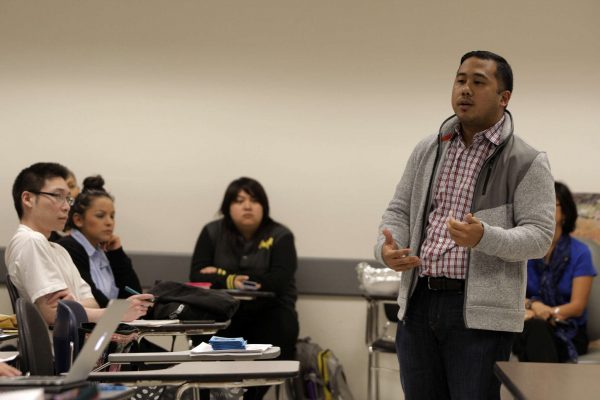
Prompted by the recent shooting death of an SF State student allegedly at the hand of her ex-boyfriend, the Asian-American studies department hosted a workshop Tuesday to confront the root causes of male violence.
Around 40 students and faculty attended the workshop to commemorate Cecilia Lam, who majored in Asian-American studies and advocated against domestic violence before her death Oct. 10.
“There was so much attention around Ceci’s death,” said Asian-American studies assistant professor Eric Pido, who spoke at the panel. “Colleagues and faculty were overwhelmed by her passing. We wanted to open the opportunity to remind folks that this is a men’s issue.”
Pido joined Ramesh Kathanadhi of Men Stopping Violence and Yeon-Shim Lee, an associate professor in the school of social work, to analyze domestic violence’s societal impact and the discussions around it.
“Intimate partner violence is pan-cultural, but racial ethnic minorities tend to experience more,” said Lee, who added that one-fourth of women are exposed to the type of violence within their lifetime.
Kathanadhi and Pido narrowed the focus on the reasons behind the violence by illustrating males’ lack of accountability. For instance, they told of a man who arrived late to class and vandalized the facilities in an attempt to enter, only to blame his wife for encouraging him to enroll in courses.
“Men use violence because they choose to, because it works and because they can,” Kathanadhi told the audience. “It’s against the code of manhood to call each other out. Male socialization matters.”

Kathanadhi and Pido asked female participants to write down ideas to elevate male behavioral expectations. In turn, they asked male members to step outside the culture of violence — from interrupting women to committing murder.
“I was very quiet when my abuses happened,” said health education student Brenda Ramos, whose courses have raised similar conversations to those in the workshop. “But learning all this, my voice does matter.”
Kathanadhi brought the discussion back to his own faults and confrontations with men he knows, like his father, despite his experience as a speaker on the issue.
“I’m not one of the good guys, I have work to do like the rest of us,” Kathanadhi said. “If we raise the bar, we can do better.”




